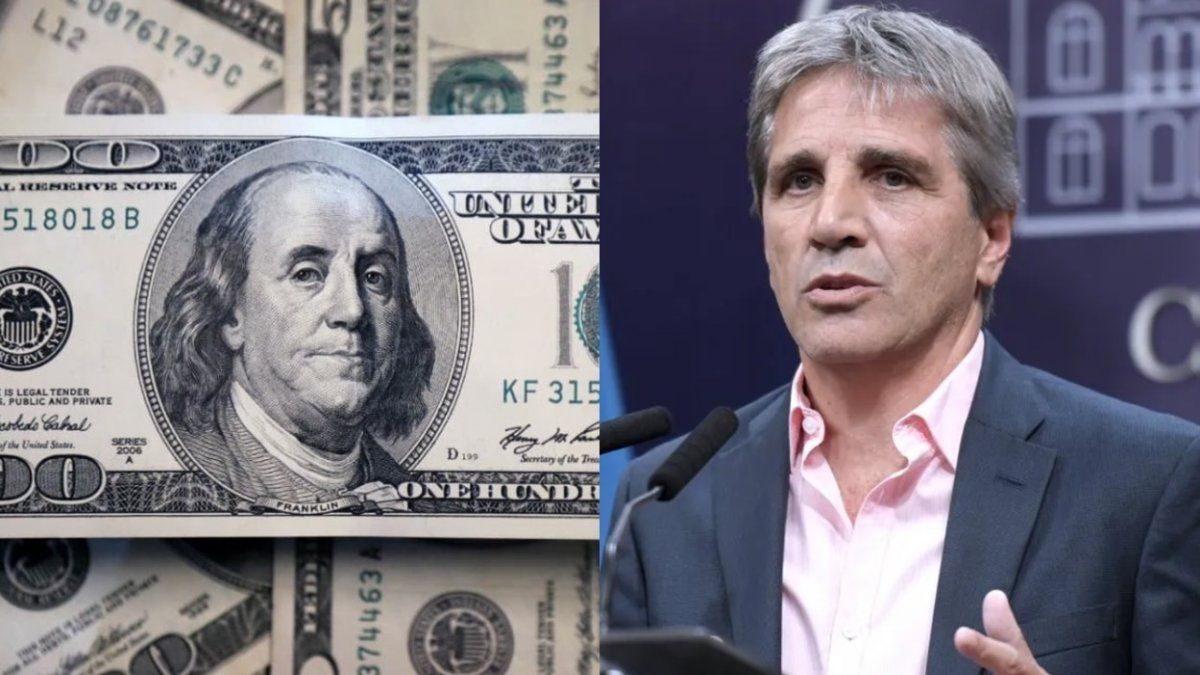Bacteria. They say that even they work by consensus. And if they don’t get it, they don’t work. That is why at the beginning of this column we ask for collaboration. Agree, quickly, on something. If there is a doubt today in the financial market – and in the entire economy, dollar included – that question consists of thinking if the use of the official exchange rate -moving at 2% monthly in its microdevaluations– and used as a “anchor” for the inflationis here to stay.
The fact is that the parameter to measure that probability is none other than the Government’s ability to lower inflation. To understand it, we will have to ask ourselves who will be the actor who ends up invalidating the dynamic in progress. Will agriculture be asking for greater devaluation to be able to liquidate its dollars? Or will it be the average citizen, the middle class, knocking on the doors of the Treasury Palace to tell the minister that things are no longer going?
The higher the inflation, the greater the probability of an exchange rate jump, but paradoxically the lower the chance of bringing the economic plan to fruition., assuming that implies what is being seen on the street with respect to consumption and production. The rampant recession.
A question that would have seemed implausible some time ago. Can Javier Milei’s government promote an economic plan that implies continuity temporary exchange ratetax increases as a permanent policy, semi-fixed exchange rate, monthly double digit inflationnegative real rates and the carrot of dollarization?
Chess in power
The exercise consists of thinking if, as of this week, the strongest man in the Government is no longer Milei or the Chief of Staff Nicolás Posse, but rather the Minister Luis Caputo. The story of the Casa Rosada now seems to depend on him. Dixit: a defeat was not suffered in Congress, but rather the rejection of the omnibus law exposed “the caste” and the economic program is safe, because January will close with a surplus.
Can Minister Caputo carry on his shoulders – which are the purges of retirees, workers and ordinary mortals– with the construction of political meaning of the Government? A question to settle somewhere: to what extent is Caputo not Mauricio Macri negotiating more power in the Cabinet and wielding the reins of a bishop willing to fight the political crisis with the numbers of the adjustment?
The other political player to follow is the Governor Martín Llaryora. Almost a primus inter pares, the man from Córdoba was the first to understand what President Milei’s bet was about when he threw himself on the grenade that involves cutting provincial transportation subsidies. The head of the Cordoba government came out, quickly, to tell the people of Cordoba – many of them Milei voters – that he, the governor, is going to provide the shoulder and the money that the Nation, out of revenge, will not spend.
Who will win in the construction of meaning? Who will add more political capital? In other words: will the mileist Córdoban voter understand that the president cuts transfers to his province because he wants to strip the caste, even if he pays more for the bus ticket and survival becomes impossible? It seems unlikely. Which leads to thinking between the lines: what if Milei backs down and sits at the negotiating table again, but with the governors most affected by the fiscal drowning?
The dollar, devaluation
Many maintain that another devaluation is coming. Mainly the market, which does so through contracts of the future dollar. Estimate gradual jumps. But finally jumps starting next month. Nothing in line with the 2% monthly that the Government promises and that some leaders of the economic team dream of. “2% monthly is 24% annually”some say, but they lower the inflation projections and take away the promise of eliminating subsidies, which would lead to greater inflationary pressure.
A senior government source try an alternative. Something could happen in the coming weeks other than maintaining the 2% monthly crawling rate, but not a draconian jump in the exchange rate either. He proposes that the nominal interest rate could be the key to follow. Around 8% monthly.
In other words: do not follow the inflation that will be above that mark, but neither remain submerged in an assumption exchange delay that inhibits the possibility of harvest liquidation. The lack of financing in the markets by the Government suggests that the exchange rate will remain in place for the coming months. What’s more: if the commitment to the IMF is read carefully in detail, the Government is only obliged to devise a recipe to get out of the trap in June of this year, but not to apply it. That step would come well after that date.
Freeze and then. Rain of investments 2.0.
In the Government they see it differently. Both Minister Caputo and Secretary Quirno (Finance) seem to lean towards “hold” the 2% monthly anchor of devaluation as much as possible. The head of the BCRA, Santiago Bausili, professes the same. There are numerous signs, but what is important is the equation that these officials push. The Government thinks this: both devaluing and accelerating the depreciation of the peso necessarily implies accelerating inflation, which leads to the failure of the economic program.
That is, despite what the Casa Rosada imposes as a story, there is a political germ in the economic equation. Milei’s statement to Ámbito about an eventual dollarization in 2025 It contains all the gestures of political calculation: year of legislative elections, the pockets of Argentines will reach in the worst way, and eventually that promise will remain to fight the polls.
Both Caputo and Quirno think that Inflation will slow down as long as they maintain the fiscal adjustment and the initial impact of the devaluation is diluted which generated the rearrangement of relative prices. The account they have on their desk is that by applying a depreciation rate like the one imposed at the start by the BCRA, and a predictable inflation projection, in December of this year the real exchange rate would be even higher than that registered since June. from 2016 to early 2018.
They also think that a devaluation has a rapid transfer to prices and that both the tradable and non-tradable sectors seek to quickly rebuild their income by calculating in dollars.
There is no lack of the promise of a rain of investments: they maintain in some conversations that countries often correct their imbalances and when they do so they experience processes of capital inflows, which in turn increase domestic aggregate demand, which results in improvements in the tradable and non-tradable sectors, productivity and finally, salaries.
What chances does the Government have of encouraging the flow of investments when devaluation and inflationary pressures are behind it? To what extent can it promote a new phase of adjustment when the signs of social exhaustion are already evident? Can the promise of dollarization serve as a bargaining chip while the middle class fights for its survival?
Source: Ambito
David William is a talented author who has made a name for himself in the world of writing. He is a professional author who writes on a wide range of topics, from general interest to opinion news. David is currently working as a writer at 24 hours worlds where he brings his unique perspective and in-depth research to his articles, making them both informative and engaging.




